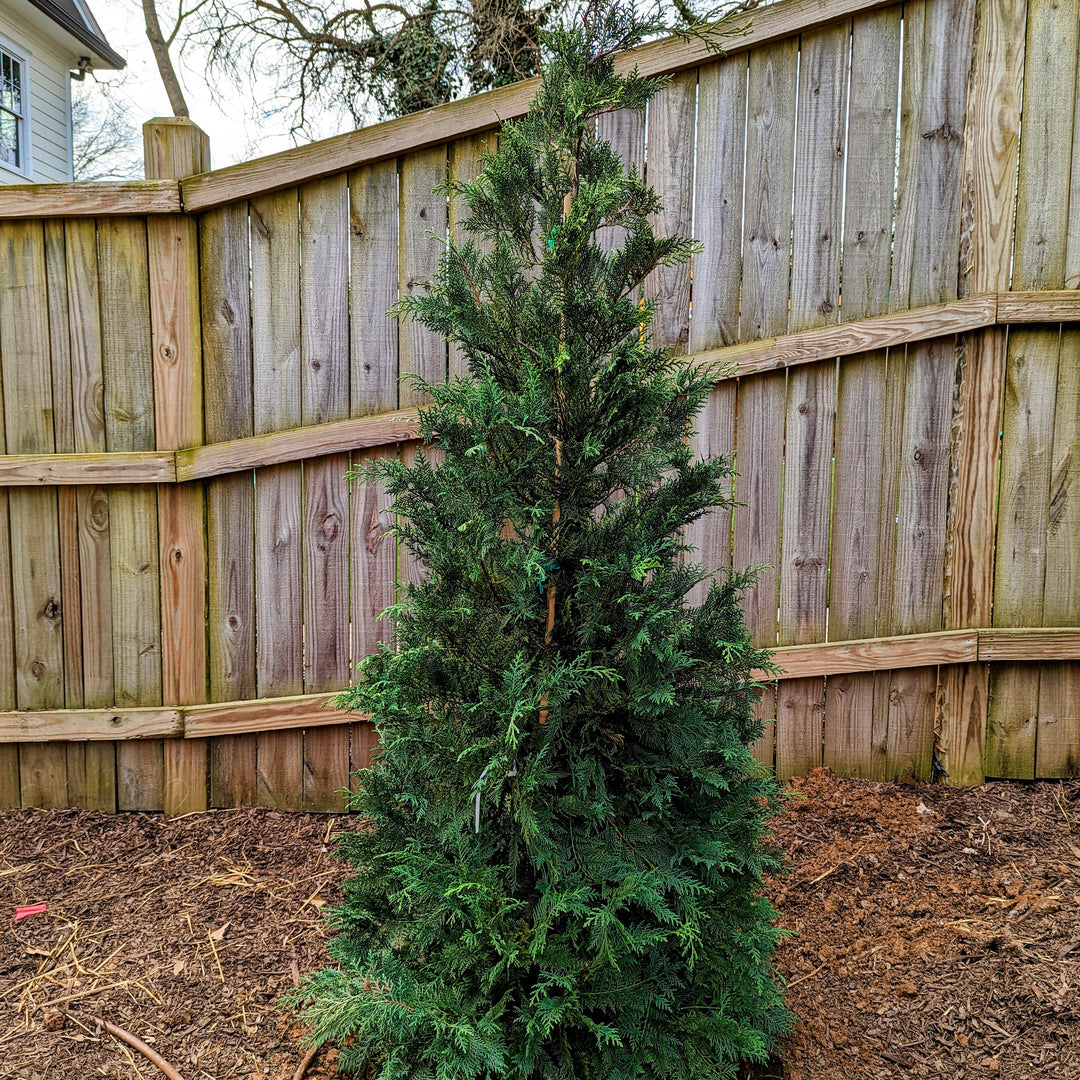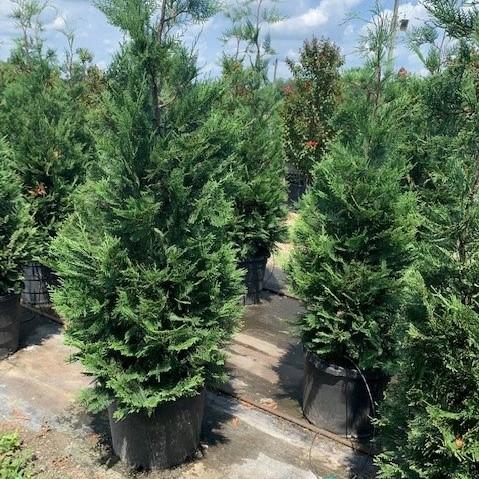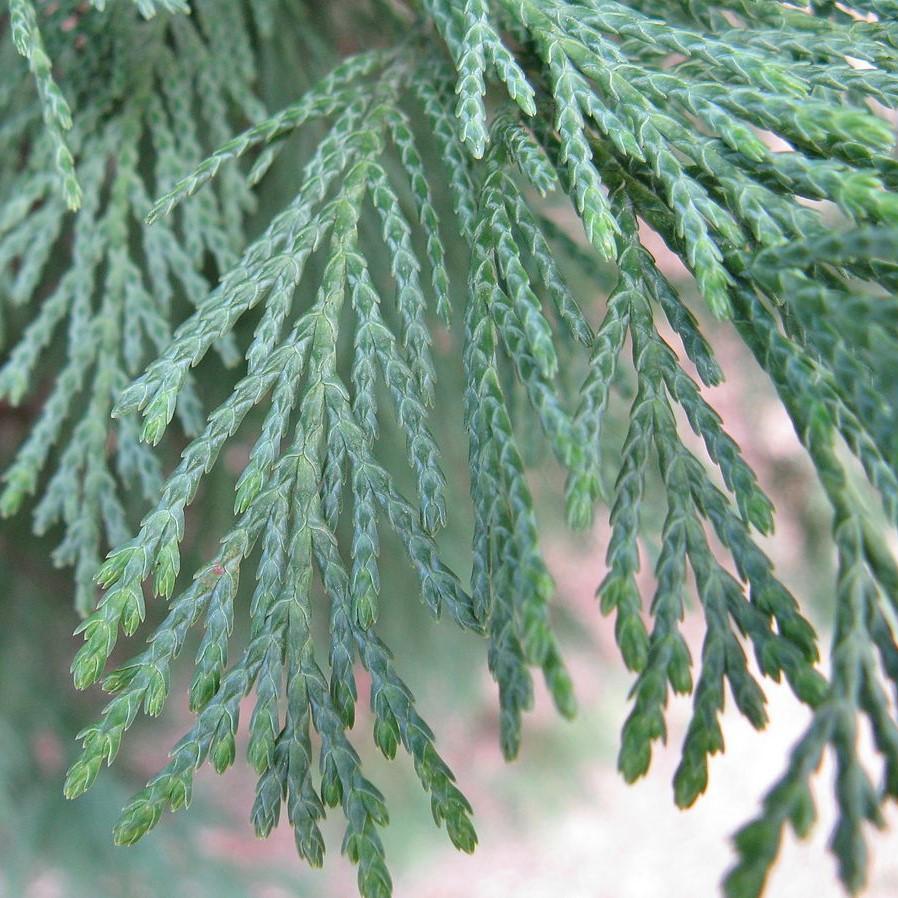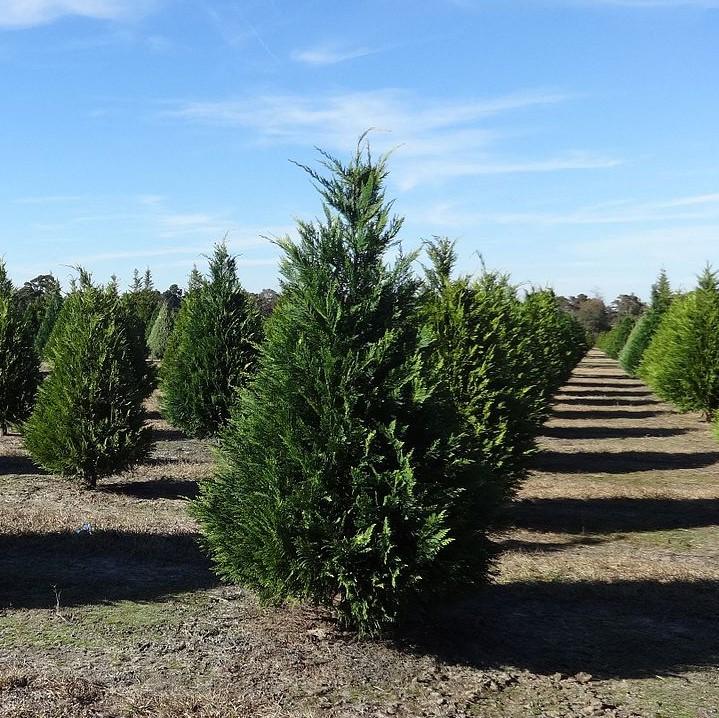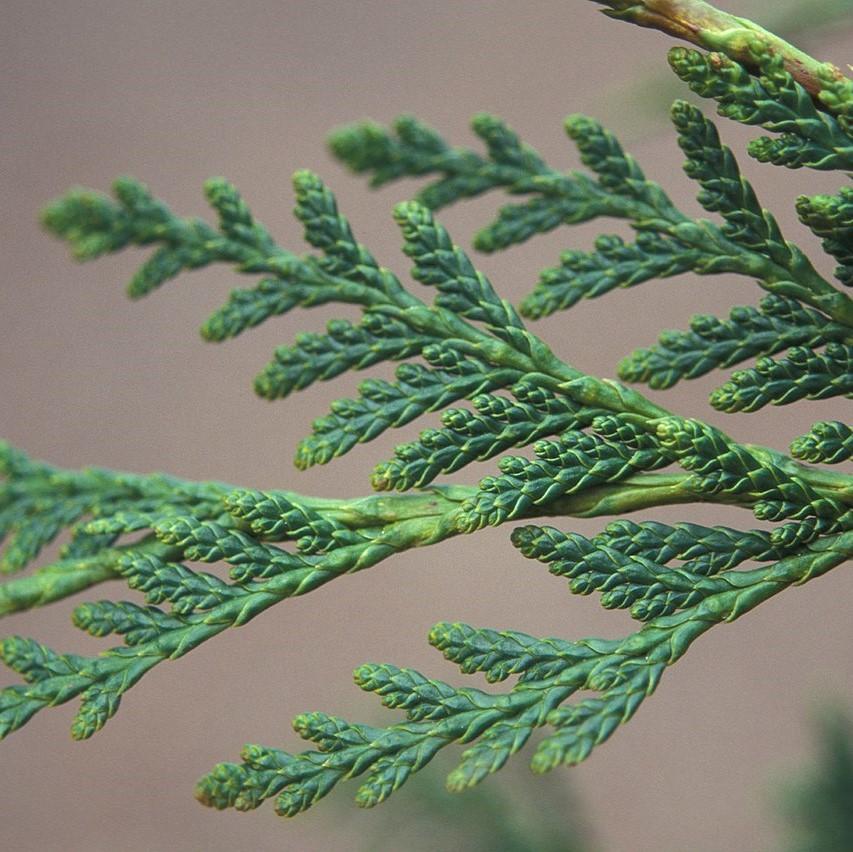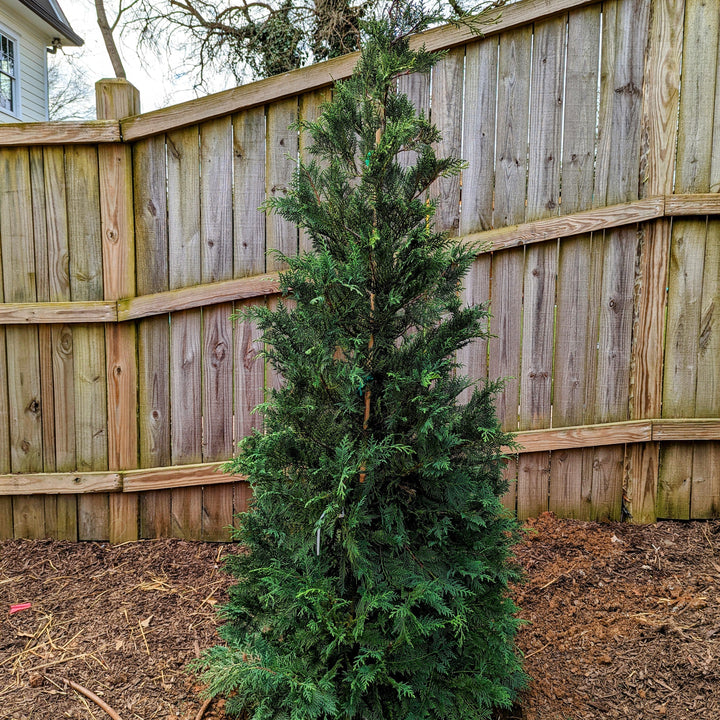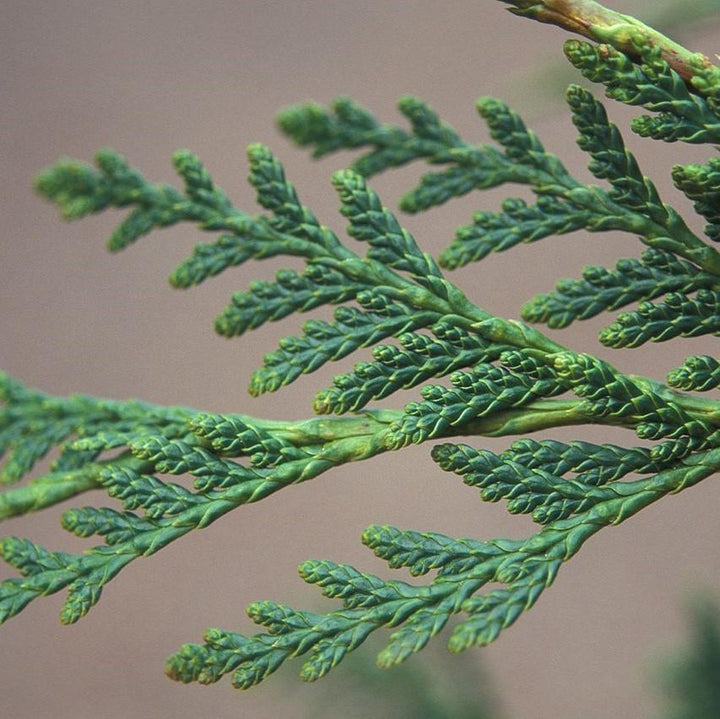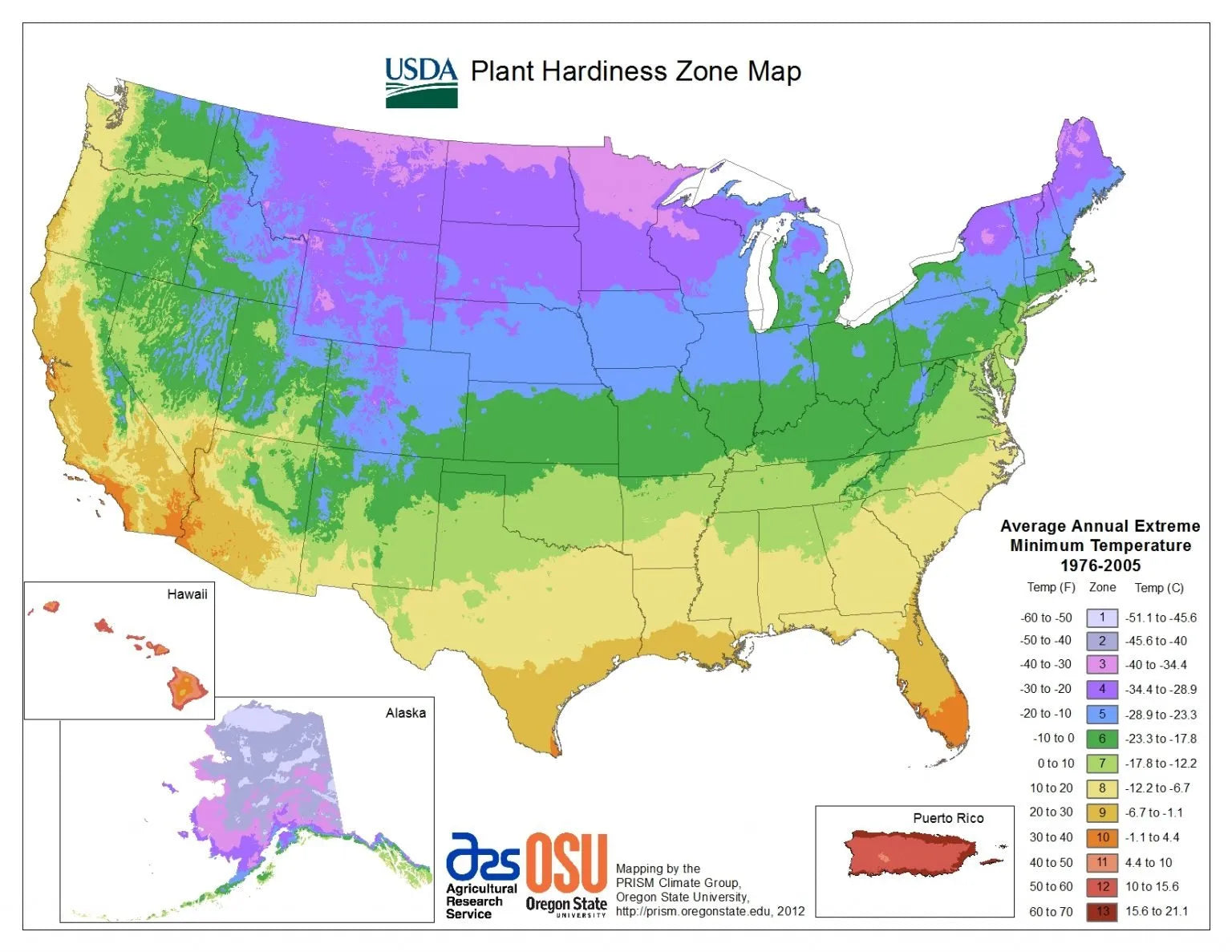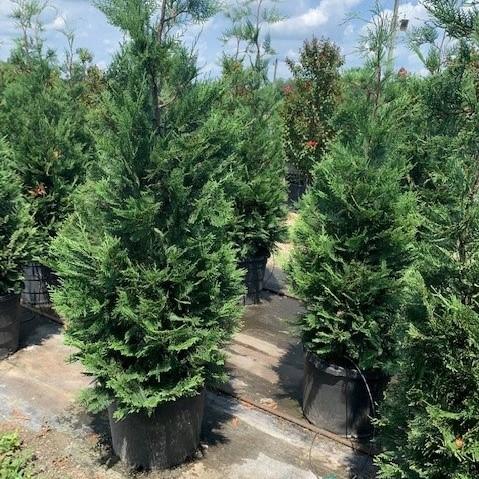Murray Cypress, Leyland Cypress
Cupressus x leylandii 'Murray'
- In stock, ready to ship
- Backordered, shipping soon
- Locally Grown
Murray Cypress and Leyland Cypress are both popular choices for creating privacy screens, hedges, and windbreaks. While they have some similarities, there are also some differences between the two.
Murray Cypress (× Cuprocyparis leylandii 'Murray') is a cultivar of the Leyland Cypress. It was developed to be more disease-resistant and tolerant of hot and humid climates. Here are some key features of the Murray Cypress:
- Size: It can grow up to 40-60 feet tall and 10-15 feet wide, making it a good choice for creating a tall and dense barrier.
- Foliage: The foliage is a vibrant green color and has a feathery texture, similar to the Leyland Cypress.
- Growth habit: It has a fast growth rate, similar to the Leyland Cypress, and can add several feet of height per year under ideal conditions.
|
Type: |
|
|
Origins: |
Monterey Cypress x Alaska Cedar Hybrid |
|
Height: |
30’ - 40’ |
|
Spread: |
8’ - 12’ |
|
Spacing: |
10’ |
|
USDA Hardiness Zone: |
6 - 10 |
|
Culture: |
|
|
Bloom Color: |
N/A |
|
Season of Interest: |
MAINTENANCE NEEDS: Low Maintenance. Water Regularly. Takes pruning well. Few problems, but watch for bagworms. Canker and root rot may occur in poorly-drained soils
LANDSCAPE USES: Accents or Group Plantings, Borders, Woodland Garden, Wildlife Gardens, Privacy Screen, and Shade Tree.
COMPANION PLANTS: Bluebeard, Viburnum, Black-eyed Susan
IMAGES: I, KENPEI, X Cupressocyparis leylandii2, CC BY-SA 3.0, (20 I, KENPEI, X Cupressocyparis leylandii3, CC BY-SA 3.0
*As plants have ranges in appearance they may not appear as the images shown
Hahira Nursery takes pride in growing high-quality, fresh, healthy plants and ensuring they are delivered safely, on time, and with little to no damage so they are ready to be planted.
Despite all of our best efforts, once the plants have left our nursery, there are many variables outside of our control that can cause plants, flowers, trees, shrubs, or grasses to not thrive as they should. Plants are living organisms and are susceptible to a number of different environmental and care factors that are outside of our control.
Our goal is to build strong relationships with our customers and we always want to make things right, but we cannot always guarantee what happens once the plants are outside of our nursery, how you care for the plants, if they’re in the correct growing zones, weather damage, soil conditions, insect infestations, etc..
If you have any questions or concerns about a purchase you’ve made, please email us at info@hahiranursery.com and we will work with you on a case-by-case basis to the best of our ability.
Please note that all living organisms are not identical and their coloring, size, and shapes may differ from what you see online in our store. Each plant has its own characteristics that are impacted by the time of year, growth cycle, weather, and other elements which will cause them to look different than their photos.


